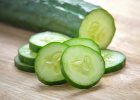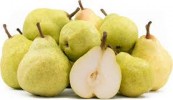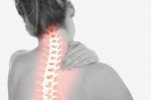How good is frozen food for health
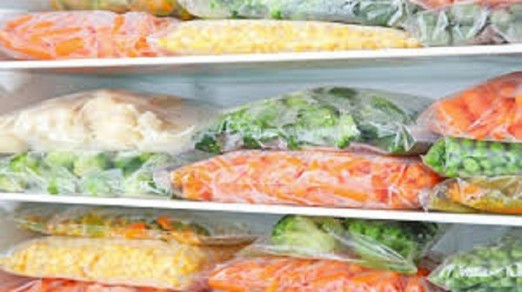
February 12,Kathmandu. In this fast -paced world, everyone is in a hurry. Nobody has time. People want to achieve everything in less time. This change in lifestyle and lack of time has completely changed people's eating habits.
Now people like ready-to-eat meals like packaged, processed and frozen foods. These food items are very convenient for those who have a busy lifestyle. Frozen foods can be taken out of the freezer and eaten immediately by deep frying them in oil or frying them in an air fryer. This saves a lot of time.
However, there is still a debate on whether eating frozen foods is good for health or not. Many people consider it harmful for health. But the question is what science, doctors and nutritionists have to say about this.
What are frozen foods?
Every food item has a shelf life. We do not get some fruits or vegetables throughout the year. In such a situation, these foods are stored in cold temperature to keep them fresh for a long time. This maintains their shelf life. For example, peas, carrots, broccoli, spinach, strawberries etc.
Are frozen foods really edible?
Dietitian and nutritionist says that frozen foods are edible, provided preservatives are not added to them. Keeping some foods in the freezer can cause a loss of nutrients in them. This depends on how they have been frozen and for how long they have been stored. In this process, there may be some loss in water-soluble vitamins like vitamin C and B.
What kind of health problems can be caused by eating frozen snacks or ready-to-eat food?
Hydrogenated palm oil is used in frozen snacks or ready-to-eat food, which contains unhealthy fats. Often these food items contain more salt, sugar and preservatives, which are harmful for health. Eating them for a long time can cause many types of health problems.
High sodium content
Often frozen meals and snacks contain high amounts of sodium i.e. salt. Sodium increases the shelf life of frozen foods, so that it does not spoil for a long time. However, due to high sodium, eating them for a long time increases the risk of serious diseases like high blood pressure, heart disease and stroke. The American Heart Association recommends an adult to eat 2,300 mg of sodium per day, but many frozen foods contain sodium equal to or much more than this amount.
Unhealthy Fats
Unhealthy fat is found in frozen snacks like pizza, samosa, spring rolls and patties. It increases bad cholesterol (LDL). This is the reason why it increases the risk of heart disease. Also, unhealthy fat contains high amount of calories, which increases the risk of obesity and diabetes.
What things should be kept in mind while using frozen foods?
While using frozen foods, read its label carefully. Look at the nutrition information on the label such as sodium, trans fat, sugar content. Apart from this, keep some other things in mind.
For how many days can frozen fruits and vegetables be used?
Dietitian says that one should avoid using fruits and vegetables kept in the refrigerator for a long time because the amount of vitamins and minerals in them decreases. Also, their taste may also change. If the color of the fruits and vegetables changes or rotting is seen in them despite keeping them in the freezer, it means that they are no longer edible. Eating such fruits and vegetables can be harmful for health.
What is the shelf life of frozen foods?
The shelf life of frozen foods depends on the type of food and the temperature at which it is kept. The shelf life of frozen foods is longer than that of fresh food. Some frozen foods can last for 3 to 6 months. For this, it is important to keep some things in mind.
- Keep the freezer temperature at -18°C.
- Keep freezer food in freezer wrap or an air-tight container.
- Do not defrost and refrost repeatedly as this increases the risk of bacterial growth.
- Make sure that white spots or ice crystals do not form on the food kept in the freezer. Do not eat it if this happens.
- If any frozen food is emitting a strange smell or there is a change in its colour, then do not use it at all.
Share this with your friends:
प्रत्येक महिला पुरुषभन्दा कमजोर छैनन् : कमला भासिन
 नरेश ज्ञवाली ►
भदौ २७, काठमाडौं। दक्षिण एसियामा लैङ्गिक समानता, शिक्षा, गरिबी निवारण, मानवअधिकार र शान्तिका...
नरेश ज्ञवाली ►
भदौ २७, काठमाडौं। दक्षिण एसियामा लैङ्गिक समानता, शिक्षा, गरिबी निवारण, मानवअधिकार र शान्तिका...
पुरुष कलमले पूर्ण नारीलाई लेख्न सक्दैन
 काठमाडौं। मान्छेहरू कडा भएर बोलेको भन्दा नरम भएर बोलेको मनपर्छ । खरा कुराभन्दा नरम, सरस र सलिल कुराहरू मनपर्छ । तर...
काठमाडौं। मान्छेहरू कडा भएर बोलेको भन्दा नरम भएर बोलेको मनपर्छ । खरा कुराभन्दा नरम, सरस र सलिल कुराहरू मनपर्छ । तर...
कालो तिलले कम्मर दुखेको र अनुहारमा भएको पोतोको उपचार गर्छ
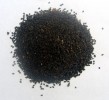 काठमाडौं । कालो तिल अथवा तिलबाट प्राप्त हुने बिऊ तेल उत्पादनको लागि प्रयोग गरिन्छ । अनुहारमा चायाँ, पोतो वा दाग,...
काठमाडौं । कालो तिल अथवा तिलबाट प्राप्त हुने बिऊ तेल उत्पादनको लागि प्रयोग गरिन्छ । अनुहारमा चायाँ, पोतो वा दाग,...
दुबईमा पहिलो पटक नेपाली कल्चरल पहिरनको फेसन शो सम्पन्न
 काठमाडौं। गत माघ २८ गते दुबईमा नेपाली कल्चरल पहिरनको फेसन शो पहिलो पटक फेसन फ्युजन २०१७ सम्पन्न भयो । एनआरएन...
काठमाडौं। गत माघ २८ गते दुबईमा नेपाली कल्चरल पहिरनको फेसन शो पहिलो पटक फेसन फ्युजन २०१७ सम्पन्न भयो । एनआरएन...
उमेर अनुसारको हुनुपर्छ खान्की, अनि मात्र मानिस स्वस्थ रहन्छ
 काठमाडौं। पोषणको आवश्यकता उमेरअनुसार परिवर्तन हुन्छ । उमेरको हरेक अवस्थामा स्वयंलाई स्वस्थ राख्न शरीरलाई...
काठमाडौं। पोषणको आवश्यकता उमेरअनुसार परिवर्तन हुन्छ । उमेरको हरेक अवस्थामा स्वयंलाई स्वस्थ राख्न शरीरलाई...
यी भोजन खाए छाला सुन्दर हुन्छ !
 काठमाडौं। स्ट्रबेरी : यो भिटामिन सीले भरपुर हुन्छ । भिटामन सीले छालालाई चाउरीबाट जोगाएर सधैं जवान राख्न मद्दत...
काठमाडौं। स्ट्रबेरी : यो भिटामिन सीले भरपुर हुन्छ । भिटामन सीले छालालाई चाउरीबाट जोगाएर सधैं जवान राख्न मद्दत...
मुलुकका सम्मानित पदमा महिलाको उपस्थिति, सबैका लागि आशाको ढोका उघारे
 काठमाडौं। अहिले नेपालका तीनवटै अंगका प्रमुख महिला भएकाले नेपाली राजनीतिक क्षेत्रमा मात्र नभएर सामाजिक...
काठमाडौं। अहिले नेपालका तीनवटै अंगका प्रमुख महिला भएकाले नेपाली राजनीतिक क्षेत्रमा मात्र नभएर सामाजिक...
लोग्नेमान्छेको जात केटी देखेपछि.....
 काठमाडौं । शान्ताको विवाह भएको पाँच वर्ष बितिसक्दा पनि छोराछोरी भएनन् बरु उनलाई एकाएक ब्लड क्यान्सर भयो । समयले...
काठमाडौं । शान्ताको विवाह भएको पाँच वर्ष बितिसक्दा पनि छोराछोरी भएनन् बरु उनलाई एकाएक ब्लड क्यान्सर भयो । समयले...
मनोसामाजिक समस्या के हो?
 साउन ११, काठमाडौं । मनोसामाजिक समस्या भन्नाले मन र समाज वीच हुने समस्या हो । यो जो कोही व्यक्तिलाई पनि हुन सक्छ ।...
साउन ११, काठमाडौं । मनोसामाजिक समस्या भन्नाले मन र समाज वीच हुने समस्या हो । यो जो कोही व्यक्तिलाई पनि हुन सक्छ ।...
महिलाको दोस्रो विवाहको कुरा सुन्दा पढेलेखेकैले अनुहार बिगार्छन्
 काठमाडौं। दोस्रो विवाहबारे मैले नसोचेको, नचाहेको होइन । तर, म मेरा आत्मीयसँग फेरि विवाह गर्नेबारे कुरा गर्छु,...
काठमाडौं। दोस्रो विवाहबारे मैले नसोचेको, नचाहेको होइन । तर, म मेरा आत्मीयसँग फेरि विवाह गर्नेबारे कुरा गर्छु,...


